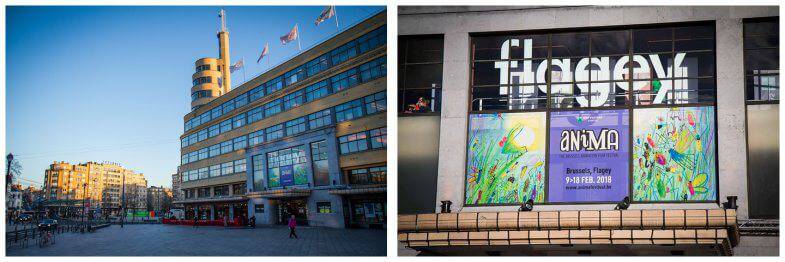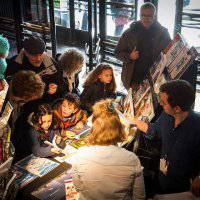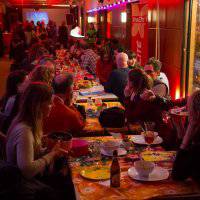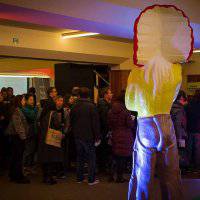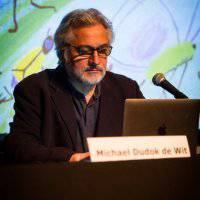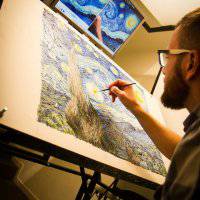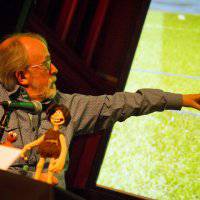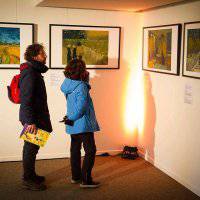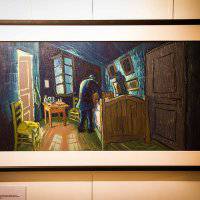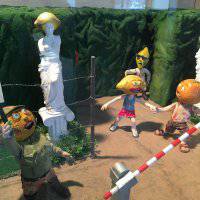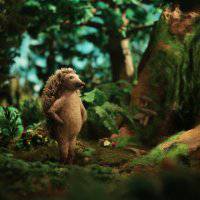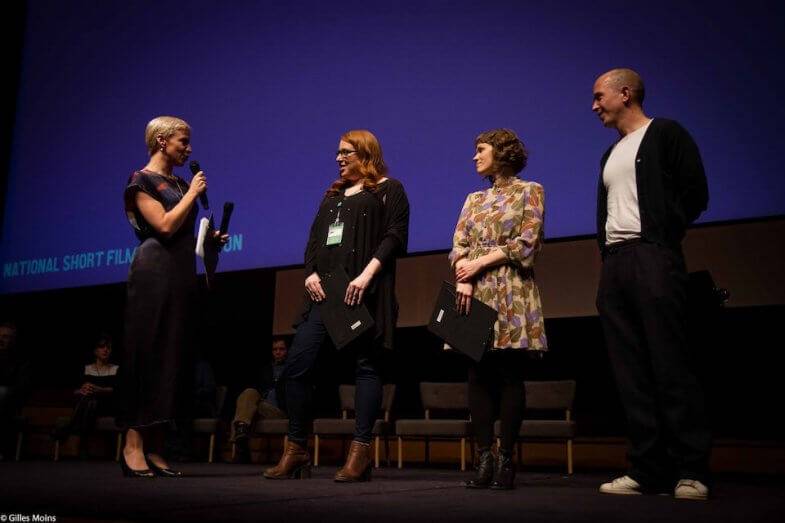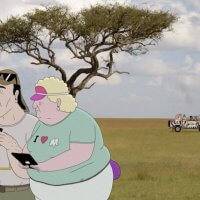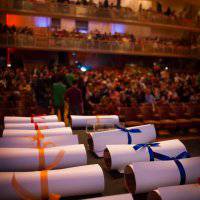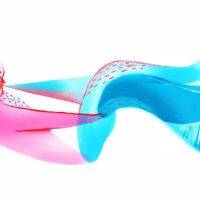A Look Back at Anima 2018: 10 Days of Pure Animation in Brussels
I had read the press releases, followed the social media accounts, and heard a lot of good things from colleagues who had been, but it never prepares you for your first visit to a new animation festival. Anima is one of those rare festivals that doesn’t pack everything into a few days, and instead takes place over 10 days – usually encompassing the school half term holiday. That isn’t to say that the programme isn’t packed full of screenings, events and plenty to see – but a ten day festival does allow for less overlapping and a more leisurely pace to take everything in.
The event is hosted in the Flagey centre, which is a beautiful Art Deco building – or ‘culture house’ – devoted to music and the moving image. Brussels is a fantastic city anyway, but the area around the venue – Flagey Square – is very charming; packed full of restaurants and bars, the Ixelles ponds and a VERY popular chip stand. I had heard that Belgium was known for it’s chips, but I had to be introduced to this place to understand why – perfect for a bite to eat between film screenings. Plus, I was lucky enough to be present for four days of blue skies and spring-like weather.
The Flagey centre is very good at fostering that ‘family/intimate’ feel that some festivals do so well. All delegates, speakers and film-makers can mingle on the 3 floors of the building, which house 3 cinema screens, two exhibition spaces (Loving Vincent and Nukufilm exhibitions), a number of places to grab food & drink; plus a pop up comic/book/DVD shop in the foyer (which is also where the festival team warmly greet you each day).
By Anima’s estimation, there were 30,000 people in attendance from Brussels, which illustrates how important the festival is to the local community as well as the international industry as a whole.
- Pop up comic & book shop in the foyer
- By night, the foyer becomes a place to mingle
- Indian (and Cowboy) from A Town Called Panic
During my four days, I crammed in a number of short film programmes. There were 8 international short programmes – one of them for student, one of them for documentary – of which I managed to see three. Additionally, there were 3 programmes devoted to Belgium shorts – of which I was lucky to catch the one that contained both the winners in the National Competition: Wildebeest and Simbiosis Carnal. One of my favourite film screenings of the whole festival, though, was Crazy Love (Saint Valentine). Taking place during the evening of Valentines Day, the audience was in a jovial mood, helped on by a good selection of short films about “love, first dates, emotions, misunderstandings, courage, and sex”. I came out of the screening having enjoyed everyone of the 14 films in this programme.
Aside from the screenings, I took in some very interesting talks, discussions and masterclasses. I have seen a few talks given by Peter Lord, but this one (Meeting Peter Lord) felt refreshingly different in the way it was led by the moderator (and teacher of animation history) Alexis Hunot. Using clips of Bristol in the 1960s, montages of influential TV shows and talking about where certain ideas come from; this was much less a history of Aardman and more a look at Lord’s life and where he has come from, which was very interesting. Of course, the talk did lead into Aardman and their films, which was all the more revealing knowing about Lord’s influences and upbringing.
- Michaël Dudok de Wit leading a 5 hour workshop
- Piotr Dominiak painting Van Gogh frame, filmed in timelapse
- Peter Lord talks the history of Aardman (with Morph and Dug!)
The following day I had a big lunch and settled in for a 5 hour session – Intuitive Creativity – Masterclass with Michael Dudok de Wit. I had seen Michael speak at a recent event, but even so, I had to see him again. Talking about his career, decision making process, and where he finds creativity, Michael has a knack of weaving in art, history and philosophy into whatever he is talking about.
On my final day I attended Rotoscopy Round Table – a discussion on whether Rotoscoping was cheating… a controversial subject made topical by the two recent feature film case studies: Loving Vincent and Belgian production ZOOks. Moderated by Erik Van Drunen, and using behind the scenes footage, Piotr Dominiak (Loving Vincent) and Kristoff Leue (ZOOks) put across their opinion. The general consensus? Rotoscoping is not cheating, it is merely a tool to aid the storytelling!
- Loving Vincent exhibition
- A painted from from Loving Vincent
- Stop motion set from the Nukufilm Studio exhibition
For the times that I was too ‘screened-out’ and needed to escape the cinema, I retreated to the two exhibitions taking place. The Loving Vincent exhibit contained a number of original frames painted from the film by artists from the 125-strong oil-painting team. Earlier in the week Piotr Dominiak had painted a special version of ‘The Starry Night’ on a replica rostrum set-up that would have been used in the studio. which was filmed in timelapse for all to see. Next door was the Nukufilm, or Stop Motion in Tallin Mode exhibit, which celebrated over 60 years of stop motion work by the Estonian studio. Puppets, sets paintings, sculptures, costumes and all sorts of objects showed the diversity and meticulousness of the films made there.
Unfortunately, I could not be present for everything I would like to have seen: the opening and closing night films (The Breadwinner and The Shower), the award ceremony, plus many other film programmes and parties. But one of the events I missed the most, I discovered happens every year on the final Saturday night: La Nuit animée (The Lively Night). Between 9:30pm to 2am, the audience dress in their pajamas or onesies (optional!) and sit back and enjoy 45 short films, a DJ, and other entertainment through the night. Definitely a reason to come back and visit next year!
- Hedgehog’s Home – part of Best of Shorts 2
- Café d’amour – part of the Crazy Love Valentines Day Screening
- Petit Astre – part of Best of Shorts 6
Anima 2019 moves back a few weeks, taking place between the 1st to 10th March. If you someone who likes to organise things a year in advance, pop it in your diary – make sure you take at least a few days to enjoy this wonderful festival. Keep your eyes on animafestival.be for news of their call for entries later this year.
The Winners
The Anima awards are split into the International Competition and the Nataional Competition (Belgium only films). The international jury was made up of Pierre-Luc Granjon, Janet Perlman and Jose Miguel Ribeiro, with the awards going to:
- GRAND PRIX ANIMA 2018 FOR BEST INTERNATIONAL SHORT FILM
Min Börda (The Burden) – by Niki Lindroth von Bahr - SPECIAL JURY AWARD
Weekends – by Trevor Jimenez - Special mention
Kötü Kız (Wicked Girl) – by Ayce Kartal - AWARD FOR BEST STUDENT SHORT FILM
Räuber & Gendarm (Cops & Robbers) – by Florian Maubach - Special mentions
Petit Astre – by Etienne Baillieu
Pombo Loves You – by Steve Warne - AWARD FOR BEST SHORT FILM FOR CHILDREN (YOUTH JURY)
La Boite – by Eliott Belrose, Carole Favier, Loïcia Lagillier, Aloïs Mathé, Juliette Perrey, Joran Rivet, France - Special mention
Löwe (Le Lion) – by Julia Ocker - AUDIENCE AWARD FOR BEST ANIMATED FEATURE
Tehran Taboo – by Ali Soozandeh - AUDIENCE AWARD FOR BEST SHORT FILM
The Green Bird – Pierre Perveyrie & Maximilien Bougeois - AUDIENCE AWARD FOR SHORT FILM FOR CHILDREN
Ameise (Ant) – Julia Ocker - ANIMATION NIGHT AUDIENCE AWARD FOR BEST SHORT FILM
Voyagers – Gauthier Ammeux & Valentine Baillon - BETV AWARD FOR BEST ANIMATED FEATURELM
Tehran Taboo – Ali Soozandeh - CREATIVE REVELATION AWARD
My Mamma is Bossies – Naomi van Niekerk - PRESS AWARD FOR BEST SHORT FILM
Hedgehog’s Home – Eva Cvijanović
The jury for the national competition was made up of Jen Hall, Anu-Laura Tuttelberg and Chris Ullens, with the awards going to:
- AWARD FOR BEST BELGIAN SHORT FILM
Wildebeest – Nicolas Keppens & Matthias Phlips - GRAND PRIX FOR BEST SHORT OF THE FÉDÉRATION WALLONIE -BRUXELLES
Simbiosis Carnal – Rocío Álvarez - AUTHOR AWARD
Wildebeest – Nicolas Keppens & Matthias Phlips - BETV AWARD
A chacun sa malédiction – Lorène Yavo - RTBF – LA TROIS AWARD
Le Marcheur – Frédéric Hainaut - CINERGIE AWARD
Simbiosis Carnal – Rocío Álvarez
- Best Belgian Short Film – WILDEBEEST
- Award Ceremony at Anima 2018 closing night
- Grand Prix for Best Short Film – SIMBIOSIS CARNAL
Congratulations to all the winners, and thank you to the whole Anima team for a memorable, successful festival. We are already looking forward to 2019!
All photos by Anima’s official photographer: Gilles Moins.



